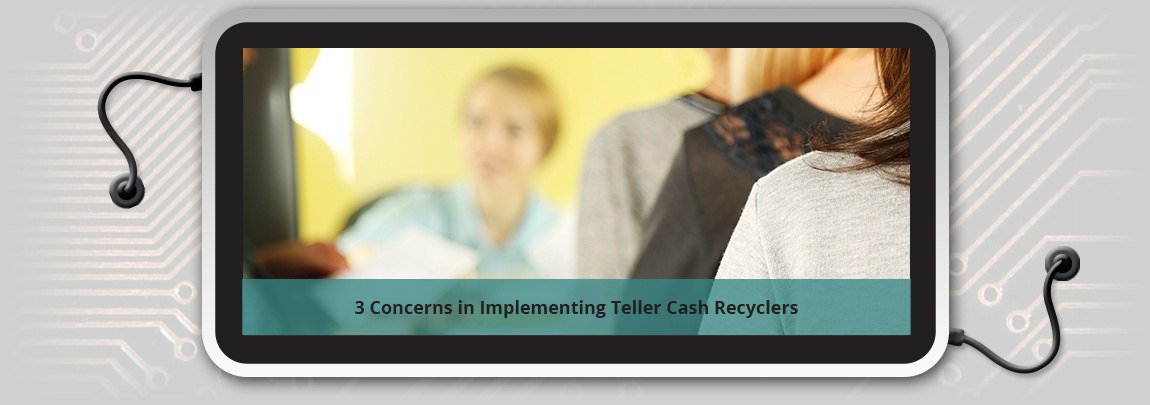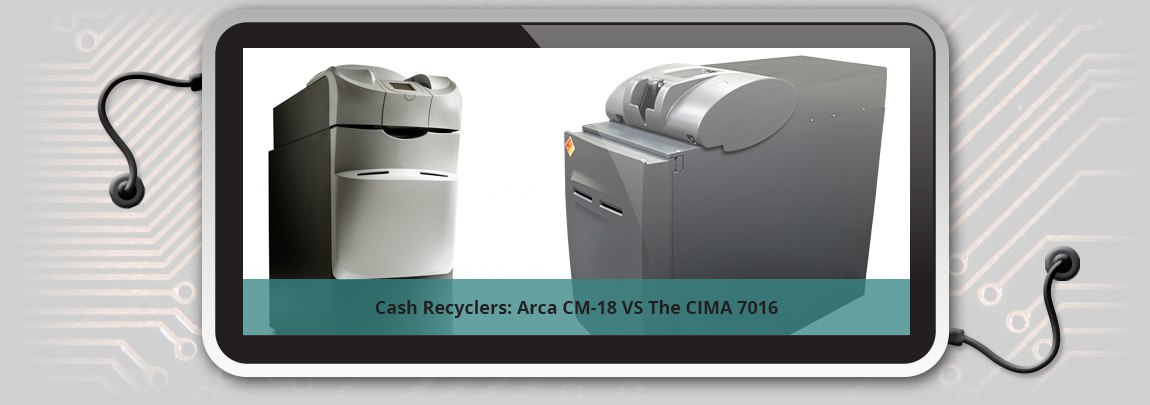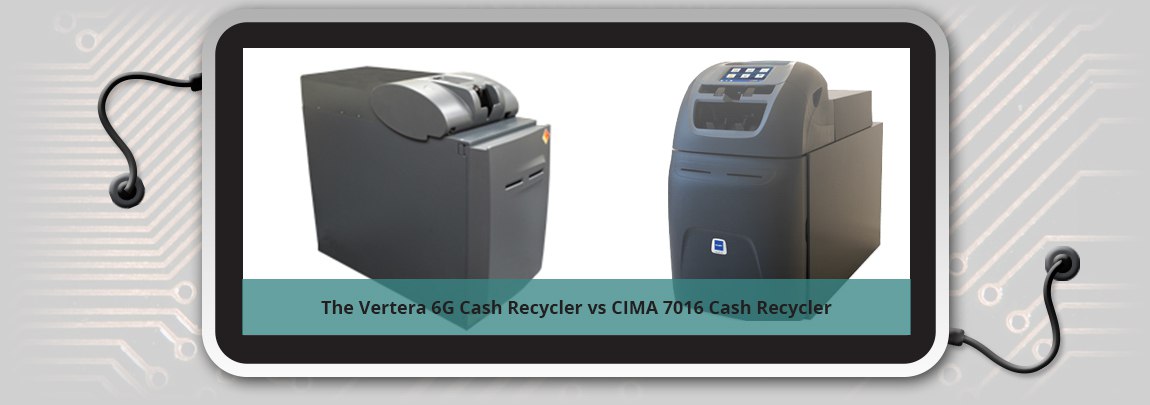Cash Recyclers: Arca CM-18 VS The CIMA 7016
Why should I automate with a cash recycler? Sure cash recyclers can be big investment for a small to mid-size financial institution. That's exactly...


There has been a huge increase in the discussion of teller cash recyclers for use in branches to aid in gaining efficienc. Teller Cash Recyclers can be one of the most effective technologies in helping staff stay focused on the right things to help your institution not only survive, but thrive. Yet there have been implementations that haven’t gone as well as expected adI wanted to address a few of those concerns you may consider when deciding if teller cash recyclers are the best fit for your locations.
When cash recyclers first came to the US market, many of them if not all of them were RSM based technology. There is still a large number of cash recyclers that still utilize this technology which stands for rolled storage modules. The standard recycler had typically 8 drums and allowed storage of around 4500-5000 notes per machine. Many FIs have made the mistake of buying recyclers for the theory but failed to understand the volume requirements needed to be successful and those standard capacities simply weren’t enough to handle the high volume locations and provide any efficiency gain. If you end up under sizing your recycler capacity, your staff can spend more time loading and unloading the recycler and defeating much of the time savings and efficiency associated in implementing cash recyclers. A few recyclers have addressed this need to handle more capacity in one unit, rather than having to install 2-3 units to handle the volume of cash at a particular location. We wrote an article outlining the Pros and Cons of each of the high capacity recyclers. Lastly, there are still locations whether its de novo branches or lower transaction volume locations that standard recyclers can function just fine. The key is to make sure you understand the volume requirements of the locations you wish to streamline and get the proper capacity needed for success.
One of the other challenges that has derailed successful recycler ideas has been branches that act as the extreme to one end or the other in the cash output or input. If your branch is extremely cash positive due high amounts of commercial cash or others, then a recycler can sometimes not be the best solution for that environment. Likewise, if your branch is cash negative or mostly spends its time cashing checks or handling withdrawals, a recycler may not be the optimal fit for that branch either. In an ideal world, the recycler has a fairly even mix of cash coming in and going out, therefore you are able to “recycle” the cash that comes in to meet the needs of the customers you are turning around and giving it back out to. If you get too far to the extreme in either direction(ideally not past 70%/30% in either direction) you tend to spend more time unloading or loading the unit manually than recycling. In some environments, however, it can still make sense if you are trying to automate both sides of transactions or eliminate some dual control challenges. For instance, Credit Unions historically are mostly cash out with member transactions, even to the tune of 90%+ out, which has led to a prolific install base of teller cash dispensers to aid in the speed and accuracy of member transactions. Many credit unions are still finding value in migrating to recyclers even with that ratio because of the overall efficiency gain of eliminating some dual control instances. Especially since the price of some recyclers has come down to the point of what they used to pay for dispensers, it makes sense to have the most up to date automation solution in their environment available.
Integration is probably one of the most misunderstood elements of installing cash automation technology in the market for sure. Our clients and prospects tend to hear a variety of information from competing sources and much of which is outdated or flat out incorrect information. Specifically for cash recyclers I believe middleware is the best overall solution for your institution. It provides maximum flexibility to you as the bank or credit union, while allowing your hardware vendor to control the whole solution. Middleware has come a long way from the dual entry arrangement 5 years ago in a number of implementations. Most middleware or soft integrations are now VERY closely integrated to the core and only require one balancing step at the end of the day to reconcile activity for the day. Many institutions haven’t been able to install recyclers because their core “didn’t support” a recycler interface just yet. The fact of the matter is, the core is not required to have a smooth recycler implementation. In true objective fashion, there can be some nice things about a direct integration from a flow standpoint in some cases if an integration is well written, but for the most part I believe that cores struggle to provide the full value of the hardware you have invested in through their in house integration department. You end up with confusing error messaging, vague codes that tellers don’t understand or even in worse case scenarios the unit dispensing the wrong amount and making it near impossible to reconcile. For more information on integration check out these two articles for help:
How Important is your Core to Cash Automation
How Middleware Gives Your Financial Institution More Control
Cash recyclers are a very helpful solution to gain efficiency in the branch environment. The open branch concept or POD concept all but requires them. However, we wanted to identify ways that your project may have struggles so you can hopefully address them in the sales process before going to implementation.

Why should I automate with a cash recycler? Sure cash recyclers can be big investment for a small to mid-size financial institution. That's exactly...

I will be honest, one of my greatest professional challenges is trying to convince customers that tried cash recyclers 10 years ago and possibly had...

Why should I automate with a cash recycler? Sure cash recyclers can be big investment for a small to mid-size financial institution. That's exactly...